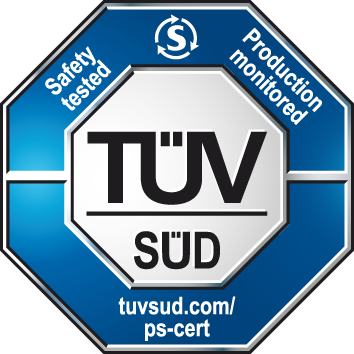# What is Ferrocene? --- ## Ferrocene is * Rust, not a subset * A downstream of The Rust Project * Long-term stable * Open Source * Qualified per ISO 26262 (ASIL D) / IEC 61508 (SIL 4) * Supplied with a warranty * Available with support * Tested differently --- ## Rust, not a subset * We didn't write a new Rust toolchain * We qualified The Rust Toolchain * The subset of Rust for safety-critical, is Rust --- ## A downstream of The Rust Project * One of the Ferrocene pillars is that the standard library and the compiler must not diverge from upstream. * We've been pulling the `master` branch of `rust-lang/rust` into our tree since 2021 --- ## Patches * Of course, some changes were required * So, we upstreamed all of them * Like [#93717], [#108659], [#111936], [#108898]... * [#111992], [#112314], [#112418], [#112454], ... [#93717]: https://github.com/rust-lang/rust/pull/93717 [#108659]: https://github.com/rust-lang/rust/pull/108659 [#111936]: https://github.com/rust-lang/rust/pull/111936 [#108898]: https://github.com/rust-lang/rust/pull/108898 [#111992]: https://github.com/rust-lang/rust/pull/111992 [#112314]: https://github.com/rust-lang/rust/pull/112314 [#112418]: https://github.com/rust-lang/rust/pull/112418 [#112454]: https://github.com/rust-lang/rust/pull/112454 --- ## Virtuous Cycle * Sometimes we find bugs that upstream missed * So we upstreamed the fixes * Like [#108905] or [#114613]. [#108905]: https://github.com/rust-lang/rust/pull/108905 [#114613]: https://github.com/rust-lang/rust/pull/114613 --- ## Long-term Stable As of 3 September 2024, the Ferrocene releases are: * *nightly* (upstream *nightly*) * *pre-rolling* (upstream *beta*) * *rolling* (upstream *stable*) * stable-24.05 (upstream *1.76*) * stable-24.08 (upstream *1.79*) Note: We strive to make each stable release available for two years, including tracking of Known Problems. The nightly, pre-rolling and rolling releases do not carry our stability or support guarantees - they only apply to our *stable-xxx* releases. See <https://public-docs.ferrocene.dev/main/qualification/plan/release.html> for details. --- ## Open Source * Ferrocene lives at <https://github.com/ferrocene/ferrocene> * The source code is MIT || Apache-2.0 * The docs are published at <https://public-docs.ferrocene.dev> --- ## Qualified per ISO 26262 (ASIL D) / IEC 61508 (SIL 4) We're in [the TÜV SÜD database](https://www.tuvsud.com/en/services/product-certification/ps-cert?q=Z10+123030+0001+Rev.+00)  --- ## `cargo` isn't qualified * Qualifying a tool that touches the Internet is hard * You don't *need* a build system... * You can just call `rustc` (which is qualified) from a simple script for production --- ## `libstd` isn't certified, `libcore` will be * It doesn't make sense to certify the Standard Library * It's mostly "If Windows, do X; if POSIX, do Y" * We are looking at certifying `libcore` --- ## Supplied with a warranty If you find a bug in the compiler, we will fix it or give you details on how to work around it --- ## Available with support * A subscription gets you binary downloads and access to the Known Problems list * Signed Qualification Documents are available (call us) * If you need additional support with your Rust development, we can help --- ## Tested Differently * The Rust Project only tests [*Tier 1* targets](https://doc.rust-lang.org/rustc/platform-support.html#tier-1-with-host-tools) * We have developed our own CI * Separate and parallel to that used by The Rust Project * They have different goals! * Having multiple independent, parallel, rock solid CI pipelines can only benefit Rust * Our CI produces the artefacts we need for qualification